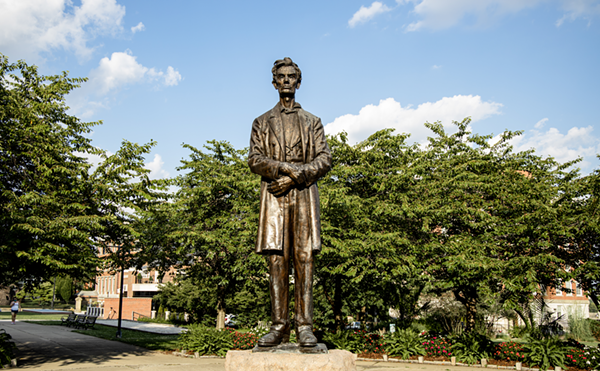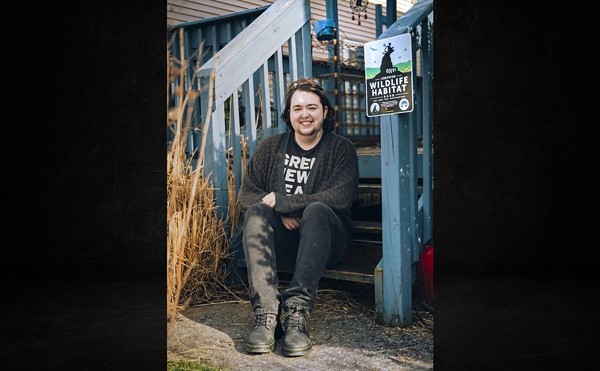|
The unique visions of writer/director Wes Anderson leave one either bewitched or bemused. There's little middle ground.
Writing in his The New Biographical Dictionary of Film, film critic and historian David Thomson notoriously wrote this spare assessment of Anderson: "Watch this space. What does that mean? That he might be something one day."
Tough stuff. But he has a point. Anderson's heightened aesthetic comes off like a precious meld of Michael Powell, J.D. Salinger, Jean Renoir and Richard Scarry — eccentric, family-laden stories wrapped up in a colorful, meticulously designed bow. His films are polarizing concoctions, acquired tastes that teeter on the edge of artificiality both in their odd tonal shifts and whimsical, often implausible narratives.
For my money, The Royal Tenenbaums (2001) remains his finest hour.
Yet one can't help but become fonder of Bottle Rocket (1996), Rushmore (1998) and even the annoyingly arch The Life Aquatic with Steve Zissou (2004) with each new exposure. Anderson's cinematic universe is jammed with exquisite detail — much of which is only apparent on subsequent viewings — and small, strangely resonant moments. He's nothing if not himself.
The same can be said of the 38-year-old Texas native's latest, The Darjeeling Limited, the tale of the Whitman brothers — Francis (Owen Wilson), Jack (Jason Schwartzman) and Peter (Adrien Brody) — who try to reconnect via a forced spiritual awakening while on a train ride through India.
Anderson, who co-wrote the screenplay with Schwartzman and fellow filmmaker Roman Coppola, was interested in finding new ground on which to investigate his pet interests. And, as usual, The Darjeeling Limited was informed by his keen, encyclopedic knowledge of movie history, specifically Renoir's India-set The River.
"That was definitely one of the inspirations for me," Anderson says by phone from a hotel room in Cleveland, his voice a manic, rapid-fire crackle through the receiver. "What appealed to me about India was how welcome I felt there and how diverse the place is, how many different cultures, how many different religions there are to respond to. There's something about the objects that are recycled and preserved and just the visual experience. It's a very intense and exciting place visually. There's just more to see than any place I've ever been."
Fittingly, Anderson's visual palette is in full bloom here, lacing India's exotic landscape and the brothers' luxurious train, called The Darjeeling Limited, with rich reds and baby blues. And while his films have always been informed by a spiritual quest of some sort, it's a much more overt narrative interest this time out.
"We're here to find ourselves and bond with each other," Francis tells his brothers early in the film. Francis even goes as far as to prepare a laminated itinerary of the brothers' trip, a list that includes "spiritual places we have to see."
"It came from Jason, Roman and I together, combining our points of view and us kind of reaching a moment in our own lives where it felt like that was the thing we wanted to dig into," Anderson says of the narrative approach. "We wanted to kind of go on our own quest or search. And it seemed like a funny idea to have these brothers who really do want to bond with each other, they do want to kind of repair their relationships, but to have them do it in a way that seems so kind of misguided, to have such a concrete plan to basically try any religion they can get their hands on and see if they can pull themselves together that way."
The Darjeeling Limited is rife with trademark Andersonisms — detailed, color-saturated production design; stylized, slow-motion sequences set to '60s Pop songs; emotionally unstable characters marked by fractured families; and urbane, irony-laced dialogue. It's a formula that is unlikely to alter Anderson's reputation as a filmmaker fond of ornate formal flourishes and emotional unease. And that's fine by him.
"The characters in my films come from people in real life and my own experiences," he says. "It's just my way of sharing them through my point of view. Some people find that they're interested in and connect with my point of view, and somebody else might find that they think it seems artificial and crazy and it doesn't work for them. Everybody's reaction is valid."
Anderson mentions Italian filmmaker Federico Fellini as an inspiration, an apt comparison in that he, too, possessed a distinctive aesthetic.
"Many of my favorite filmmakers are quite recognizable in their approach to their movies," he says. "It's really their personality coming through. I don't mind if my movies are sort of linked together by my point of view — maybe I end up with a little body of work and those DVDs can sit together on a shelf and they sort of follow a certain train of thought." ©





